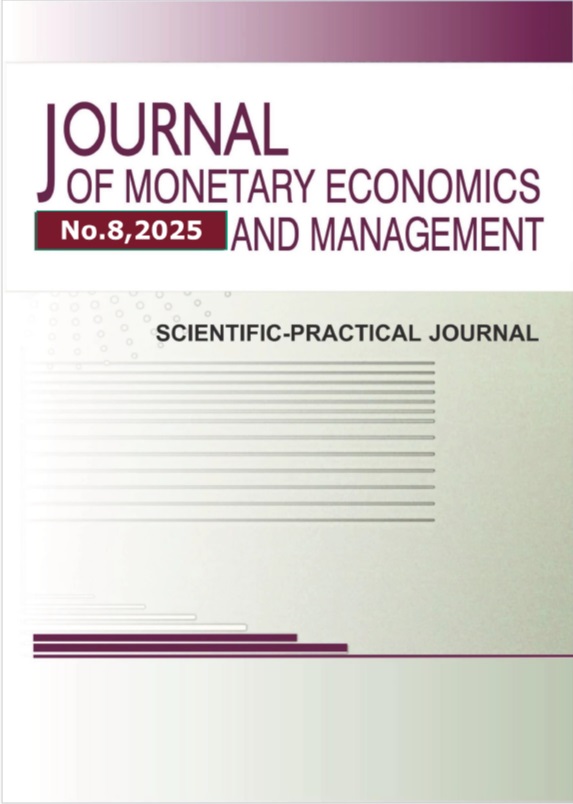employee
Federal Research Sociological Center of the Russian Academy of Sciences (professor)
employee
The relevance of the study is due to the exhaustion of traditional economic indicators (GDP) for assessing public welfare and the need to adapt the methodology to the challenges of the new reality, including digitalization and global crises. The purpose of the article is to conduct a comprehensive theoretical analysis of the evolution of methodological approaches to assessing the quality of life of the population, with a special emphasis on systematization and critical reflection of the contribution of the modern Russian scientific school. The methodology of the work is based on the theoretical analysis, synthesis and generalization of relevant scientific publications of leading Russian economists and sociologists. The results of the study demonstrate a clear trajectory of methodological transformation: from the dominance of objective economic indicators to the formation of subjective assessments of well-being and, finally, to the modern stage of synthesis - the creation of complex integral models. The analysis revealed the key stages of this evolution and justified the need to include new factors in the assessment models, such as the impact of digitalization and resistance to external shocks. The importance of the regional aspect in Russian studies is emphasized. The conclusions come down to the fact that the modern scientific consensus indicates the need to apply systemic, adaptive and regionally differentiated models that integrate objective conditions and their subjective perception. Promising areas of further research are related to the in-depth study of psychological well-being and the ethically verified use of big data analysis.
quality of life, assessment methodology, evolution of approaches, objective indicators, subjective well-being, integral models, regional aspect, digitalization
1. Aganbegyan A. G. O preodolenii stagnacii, recessii i dostizhenii pyatiprocentnogo rosta // Ekonomicheskoe vozrozhdenie Rossii. – 2019. – №. 2 (60). – S. 17-23.
2. Ayvazyan S.A. Analiz kachestva i obraza zhizni naseleniya. M.: Nauka, 2012. – 432 s.
3. Bobkov V. N. i dr. Bezuslovnyy bazovyy dohod: razmyshleniya o vozmozhnom vliyanii na povyshenie urovnya i kachestva zhizni i ustoychivosti obschestva // Uroven' zhizni naseleniya regionov Rossii. – 2019. – №. 3. – S. 8-24.
4. Bobkov V. N. i dr. Prostranstvennoe neravenstvo kachestva i urovnya zhizni naseleniya: Ural'skiy i Privolzhskiy federal'nye okruga i Rossiya v celom (2013–2016 gg.) // Uroven' zhizni naseleniya regionov Rossii. – 2018. – №. 1 (207). – S. 15-28.
5. Bobkov V. N. i dr. Sravnitel'nye harakteristiki indikatorov kachestva i urovnya zhizni v rossiyskih regionah: sub'ekty, federal'nye okruga, Arktika // Uroven' zhizni naseleniya regionov Rossii. – 2017. – №. 1 (203). – S. 50-64.
6. Bobylev S. N. Ustoychivoe razvitie: paradigma dlya buduschego // Mirovaya ekonomika i mezhdunarodnye otnosheniya. – 2017. – T. 61. – №. 3. – S. 107-113.
7. Doholyan S. V. Denezhnye dohody i rashody naseleniya na sovremennom etape razvitiya strany // Izvestiya Kabardino-Balkarskogo nauchnogo centra RAN. – 2024. – T. 26. – №. 4. – S. 83-93.
8. Doholyan S. V., Vershinina M. A. Indeks chelovecheskogo razvitiya i social'noe blagopoluchie: sovremennyy podhod k ocenke kachestva zhizni // Regional'nye problemy preobrazovaniya ekonomiki. – 2024. – №. 11. – S. 348-360.
9. Doholyan S. V., Vershinina M. A. Social'naya differenciaciya i prodolzhitel'nost' zhizni naseleniya: vzaimosvyaz' i perspektivy // Regional'nye problemy preobrazovaniya ekonomiki. – 2024. – №. 12. – S. 412-421.
10. Zubarevich N. V. Regiony Rossii v novyh ekonomicheskih usloviyah // Zhurnal Novoy ekonomicheskoy associacii. – 2022. – T. 3. – №. 55. – S. 226-234.
11. Kargapolova E. V. Social'noe samochuvstvie naseleniya: regional'nyy aspekt // Vestnik Tyumenskogo gosudarstvennogo universiteta. Seriya: Sociologiya.–2011.–№ 8. – 2011.
12. Mareeva S. V. Social'nye neravenstva i social'naya struktura sovremennoy̆ Rossii v vospriyatii naseleniya // Vestnik instituta sociologii. – 2018. – T. 9. – №. 3. – S. 101-120.
13. Nogova E. V. Ob'ektivnye i sub'ektivnye determinanty udovletvorennosti zhizn'yu // Fundamental'nye i prikladnye nauchnye issledovaniya: aktual'nye voprosy, dostizheniya i innovacii. – 2020. – S. 187-189.
14. Prohorov P. E. Statisticheskaya ocenka razvitiya cifrovyh navykov zanyatogo naseleniya v Rossiyskoy Federacii // Statistika i ekonomika. – 2022. – T. 19. – №. 3. – S. 25-38.
15. Tagaverdieva D. S. Vliyanie cifrovizacii na kachestvo zhizni naseleniya // UEPS: upravlenie, ekonomika, politika, sociologiya. – 2021. – №. 4. – S. 73-78.
16. Tikunov V. S., Belousov S. K. Integral'naya ocenka kachestva zhizni naseleniya gorodov i regionov Rossii // Vestnik Moskovskogo universiteta. Seriya 5. Geografiya. – 2022. – №. 2. – S. 48-60.
17. Tihonova N. E. Social'naya struktura Rossii: teorii i real'nost'. – 2014.
18. Schekotin E. V. Cifrovye sledy kak novyy istochnik dannyh o kachestve zhizni i blagopoluchii: obzor sovremennyh tendenciy // Vestnik Tomskogo gosudarstvennogo universiteta. – 2021. – №. 467. – S. 170-181.









